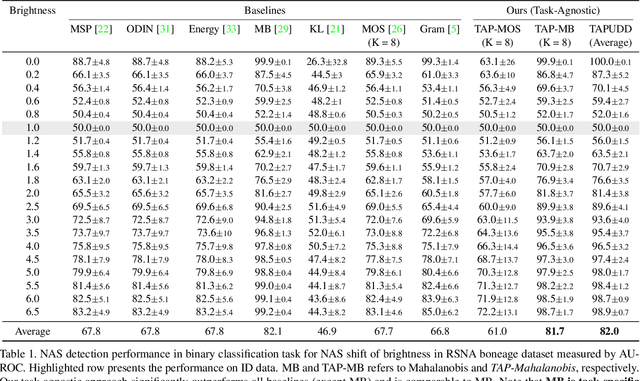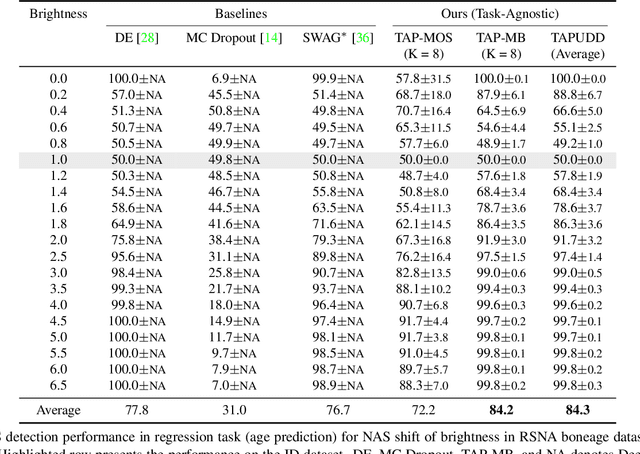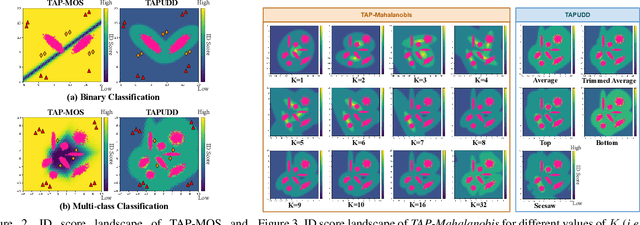Task Agnostic and Post-hoc Unseen Distribution Detection
Paper and Code
Jul 26, 2022



Despite the recent advances in out-of-distribution(OOD) detection, anomaly detection, and uncertainty estimation tasks, there do not exist a task-agnostic and post-hoc approach. To address this limitation, we design a novel clustering-based ensembling method, called Task Agnostic and Post-hoc Unseen Distribution Detection (TAPUDD) that utilizes the features extracted from the model trained on a specific task. Explicitly, it comprises of TAP-Mahalanobis, which clusters the training datasets' features and determines the minimum Mahalanobis distance of the test sample from all clusters. Further, we propose the Ensembling module that aggregates the computation of iterative TAP-Mahalanobis for a different number of clusters to provide reliable and efficient cluster computation. Through extensive experiments on synthetic and real-world datasets, we observe that our approach can detect unseen samples effectively across diverse tasks and performs better or on-par with the existing baselines. To this end, we eliminate the necessity of determining the optimal value of the number of clusters and demonstrate that our method is more viable for large-scale classification tasks.
 Add to Chrome
Add to Chrome Add to Firefox
Add to Firefox Add to Edge
Add to Edge